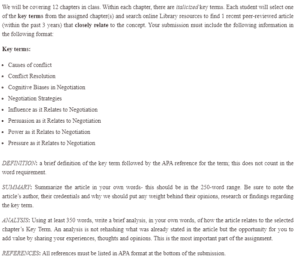Persuasion As It Relates To Negotiations
Definition
The term persuasion refers to the ability to change people’s or a person’s attitude or mindset towards something by utilizing various resources such as spoken or written words; Negotiation refers to reaching a mutually beneficial agreement to overcome a conflict that might exist. Persuasion plays a massive role in the negotiation process.
Summary
The authors of the article, Yvette Holmes, Brayan Hochstein, Lauren Beitelspacher, and Willy Bolander, are all affiliates of the University of Alabama. Dr. Yvette Holmes graduated from Florida A&M University with her degree and MBA and from Florida State University with her Ph.D. She is a distinguished member of the business community and a Marketing Professional. In her article, she states that customers have ways of getting a vast array of information they use to persuade salespeople when negotiating prices. Customers can use the internet to obtain information on different products, compare prices, and use that information as leverage. They are then able to extract value through negotiation. Due to the availability of information, power has shifted over to the consumers. Salespeople and businesses have to concede to the demands of the customers to build the brand’s loyalty and retain their customers. According to Holmes eet al. (2017), consumers use persuasion during a sales interaction to potentially maximize the value of the negotiation in their favor. Persuasion knowledge, in this case, refers to a consumer’s perceived understanding of the persuasion tactics, strategies and motives of the salesperson or business. During the negotiation process, salespeople also aim to improve the value of the bargain they get from the customers.
Analysis
The article acknowledges the importance of persuasion in the negotiation process between buyers and sellers. Both parties want to derive as much value in their favor as possible, which might lead to conflict. The availability of information has given consumers some power in that they can persuade the sellers since they can go to another seller. Sellers usually have little say in the matter as they stand to lose more than the customers. One can see persuasion at work in B2C interactions. For instance, one can observe how customers bid for products on sites like eBay. Customers can place a bid based on the price they feel is right, and many usually bid around the same price, so a seller has little input in the price. To curb this and avoid any conflict, sellers employ several strategies to try and lessen customers’ power.
One strategy is avoiding negotiation. In this strategy, the salesperson uses evasive language or other tactics to physically or psychologically remove himself from the process to prevent conflicts. Several different strategies salespeople can employ other than avoiding negotiation. Persuasion benefits customers more since salespeople and businesses have much to lose. For instance, they stand to lose the customer, reputation and loyalty if they overcharge a customer for a product. If they concede to the customer’s prices, they will also have to forgo some value to evade conflict with the customers. I once had to negotiate with a salesperson, and it did not go my way because, at the time, I did not have customer persuasion knowledge as I had not gathered enough information on the product. It was a relatively new product, and I wanted to get on it as soon as possible. We had disagreed on the item’s price several times, but I bought it anyway, only to find out that I had paid five dollars more.
Reference
Holmes, Y. M., Beitelspacher, L. S., Hochstein, B., & Bolander, W. (2017). “Let’s make a deal:” Price outcomes and the interaction of customer persuasion knowledge and salesperson negotiation strategies. Journal of Business Research, 78, 81-92.
ORDER A PLAGIARISM-FREE PAPER HERE
We’ll write everything from scratch
Question
We will be covering 12 chapters in class. Within each chapter, there are italicized key terms. Each student will select one of the key terms from the assigned chapter(s) and search online Library resources to find 1 recent peer-reviewed article (within the past 3 years) that closely relate to the concept. Your submission must include the following information in the following format:

Persuasion As It Relates To Negotiations
Key terms:
- Causes of conflict
- Conflict Resolution
- Cognitive Biases in Negotiation
- Negotiation Strategies
- Influence as it Relates to Negotiation
- Persuasion as it Relates to Negotiation
- Power as it Relates to Negotiation
- Pressure as it Relates to Negotiation
DEFINITION: a brief definition of the key term followed by the APA reference for the term; this does not count in the word requirement.
SUMMARY: Summarize the article in your own words- this should be in the 250-word range. Be sure to note the article’s author, their credentials and why we should put any weight behind their opinions, research or findings regarding the key term.
ANALYSIS: Using at least 350 words, write a brief analysis, in your own words, of how the article relates to the selected chapter’s Key Term. An analysis is not rehashing what was already stated in the article but the opportunity for you to add value by sharing your experiences, thoughts and opinions. This is the most important part of the assignment.
REFERENCES: All references must be listed in APA format at the bottom of the submission.
(continued) Use the headers in your submission to ensure all assignment aspects are completed as required.

